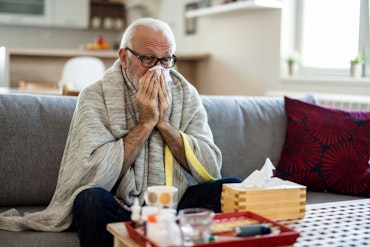Professor’s perspective opens up on advances in Parkinson’s research
An Australian Professor of Cognitive Neuroscience has come forward and shared his “perspective” on the rapid advances and the scientific understanding of Parkinson’s Disease, saying “there has never been a more exciting time to be a researcher in the field”, but warns that while there is hope, there may never be a cure.

PARKINSON’S RESEARCH: “There has never been a more exciting time to be a researcher in the field” (Source: Shutterstock)
The article, by the University of Sydney Brain and Mind Centre’s Professor Simon Lewis, was published online by the Medical Journal of Australia, and not only highlights the rapid advances being seen by researchers, but also the global acceleration of effective treatments to slow, stop or reverse the disease.
He says that while scientists understanding of Parkinson’s has been growing inexorably, this has only served to reveal it’s ever increasing complexity.
“We have discovered a variety of clues regarding the underlying neuropathy of this disease, including the identification of epidemiological factors that increase or reduce risk – such as smoking, pesticides, caffeine exposure, genetic causes… and preclinical biomarkers – such as rapid eye movement sleep behaviour disorder, anosmia and constipation,” Professor Lewis says.
“We are also becoming increasingly aware about the role of specific cellular and more widespread processes implicated in Parkinson’s disease.”
He adds that other promising areas of exploration include the theory that Parkinson’s represents a prion-like process, which could be targeted with active or passive immunisation approaches.
Other potential therapies include targeting neuroinflammation, energy processes and protein clearance.
Professor Lewis says the repurposing of existing medications or the use of dietary supplements offers an “obvious appeal” in terms of safety, costs and time to market, but warns that those agents need a “sound scientific rationale” before evaluation.
He also makes note of diabetes medications which show some promise, although results have been mixed.
“Genetic causes of Parkinson disease offer insights for novel strategies and there is likely to be an increasing exploration of cell-based therapies, gene delivery systems, photobiomodulation, fasting diets and modulation of the gut microbiome as approaches for slowing disease progression,” he explains.
“Despite the shifting balance from hype to home, we must accept the fact that we may never have a cure for Parkinson’ disease, and we should continue to focus on delivering the very best care to patients with whatever we can muster from our armoury.”
Parkinson’s Australia Chief Executive Officer (CEO) Steve Sant welcomes Professor Lewis’ Perspective, saying it is a great overview of the research that is being undertaken in searching for better treatments and a cure for Parkinson’s.
“Parkinson’s has a huge impact on the lives of those that live with it everyday and on their carers and families,” Mr Sant explains.
“We are not happy with the level of investment in Australia, we have high quality researchers and clinicians here but we do not support the level of research that is appropriate given the impact and cost of Parkinson’s to our community.
“We have seen a lot of progress over the last few years with the first indication last year that a drug may slow the progression of Parkinson’s which does give us some hope.
“But, for the people living with Parkinson’s, they also need better care and support today so the Federal and State Government ,must invest in this to keep these people living independently and out of hospital and residential care.
“Whilst we don’t know what causes Parkinson’s, we don’t have any tests or investigations that can be used to diagnose Parkinson’s, we are seeing progress and this gives us hope that we will see more effective treatments to slow, stop, reverse and prevent Parkinson’s.”











![The new Aged Care Act exposure draft is slated for release in December of 2023, but advocates hope to see it rolled out on January 1, 2024. [Source: Shutterstock]](https://agedcareguide-assets.imgix.net/news/articles/wp/agedcareact__0811.jpg?fm=pjpg&w=520&format=auto&q=65)












Comments